Early in this transporting novel, the protagonist, 25-year-old television reporter Ali Sikandar, wonders, “How many other families lived like fractured glass, cracked but still holding up within the constraints of their frames?” It’s an elegant and potent metaphor about a family left shattered by a father who has started over with a younger wife. It’s also a fitting description of the novel’s setting, Pakistan, a nation as chronically ill-served by its own heads of state as Ali and his siblings were by their father.
It is the fall of 2007, and Pakistan is so on edge that an urban legend about an at-large explosives-wearing jihadi is taken for truth. “It’s your lucky day,” the suicide bomber reportedly tells his would-be victims. “Today you are going to get to be a martyr.”
Ali is as riven as the country of his birth, cleaved by what is at once a longing and a hatred for his father, a man who, as Ali tells it, “… was never deliberately cruel to any of them, but then again, never was he purposefully kind.”
Ali, too, longs to leave. Even leave his mother, who, in his melancholy estimation, had always “… wavered somewhere between elevated servant and tolerated spouse.” Ali bears her disappointments with the weary knowledge of one who will disappoint again.
Secretive, conflicted, hurting, Ali quietly applies for a visa to study in the United States. But when his appointment at the U.S. Embassy finally comes, Ali is split anew. Portraits of George W. Bush and Vice President Dick Cheney trigger thoughts that erode his resolve: “Ali tried not to look at them, but it was impossible: their eyes followed you wherever you went in the room. Had either of them known what kinds of horror they were going to subject Pakistan to when they began the War on Terror?”
He flees the embassy. “‘America would have to wait,’ Ali thinks. ‘Until things were better, for America and for himself.’”
Alternating throughout are chapters that delve into the mystical, distant history of Sindh, Ali’s home province in southeastern Pakistan, land of Sufi saints and, as the reader comes to know, birthplace of other martyrs, too. Here, Bina Shah ’93—an internationally published journalist living in Karachi—makes deft use of fact, myth, and verse to establish Sindh as a beguiling, if complicated, place. These chapters narrate the centuries-long story of Ali’s prominent, landowning father’s family and slyly reveal its ties to another, even more powerful one: that of former Prime Minister Benazir Bhutto.
Which returns us to the three short, momentous months, the last of 2007 and the last of Bhutto’s life, that wend through the other chapters. For Pakistan, they are a time of convulsion, violence, and disarray. For Ali, covering the tumult, they yield an awakening: He’d rather live history, experience revolutionary fervor, than report on it.
Toward the novel’s close, a flashback to 1961 shows us a soothsayer calling out a prophecy to a little girl at the shrine of the patron saint of Karachi: “My queen!” he cries, as family servants, spooked, hurry her away. “My beloved! She has come to save Sindh! She will live forever! Martyrs never die!” The girl is Benazir Bhutto.
Forty-six years later, on December 27, 2007, Ali, disarmed of his journalist’s remove, submits to a similar kind of rapture at what will be Bhutto’s last rally, in Rawalpindi. He has found his beloved, he believes. He is ecstatic with recognition. In an instant, centuries of their families’ parallel histories will collide. In a season for martyrs, it just might be his lucky day.
Horan is the author, with Humaira Awais Shahid, of Devotion and Defiance: My Journey in Love, Faith and Politics

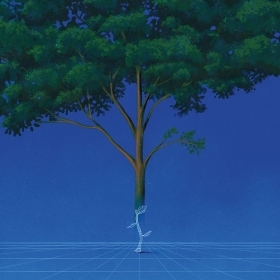
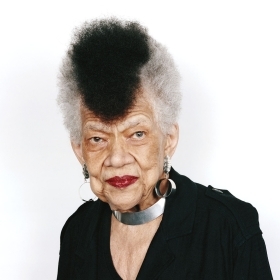

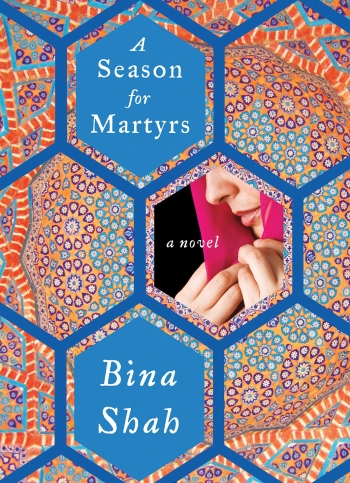
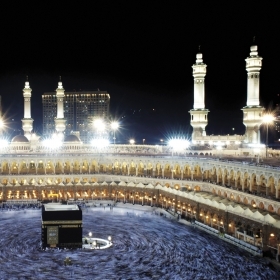
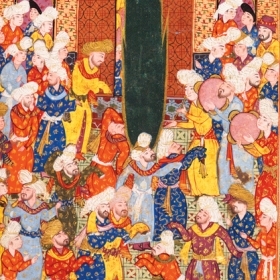

We ask that those who engage in Wellesley magazine's online community act with honesty, integrity, and respect. (Remember the honor code, alums?) We reserve the right to remove comments by impersonators or comments that are not civil and relevant to the subject at hand. By posting here, you are permitting Wellesley magazine to edit and republish your comment in all media. Please remember that all posts are public.